-
 New Epstein accuser claims sexual encounter with ex-prince Andrew: report
New Epstein accuser claims sexual encounter with ex-prince Andrew: report
-
Italy's extrovert Olympic icon Alberto Tomba insists he is 'shy guy'

-
 Chloe Kim goes for unprecedented snowboard halfpipe Olympic treble
Chloe Kim goes for unprecedented snowboard halfpipe Olympic treble
-
Pakistan combing for perpetrators after deadly separatist attacks

-
 Israel partially reopens Gaza's Rafah crossing
Israel partially reopens Gaza's Rafah crossing
-
Iran declares European armies 'terrorist groups' after IRGC designation

-
 Snowstorm disrupts travel in southern US as blast of icy weather widens
Snowstorm disrupts travel in southern US as blast of icy weather widens
-
Denmark's Andresen swoops to win Cadel Evans Road Race

-
 Volkanovski beats Lopes in rematch to defend UFC featherweight title
Volkanovski beats Lopes in rematch to defend UFC featherweight title
-
Sea of colour as Malaysia's Hindus mark Thaipusam with piercings and prayer

-
 Exiled Tibetans choose leaders for lost homeland
Exiled Tibetans choose leaders for lost homeland
-
Afghan returnees in Bamiyan struggle despite new homes

-
 Mired in economic trouble, Bangladesh pins hopes on election boost
Mired in economic trouble, Bangladesh pins hopes on election boost
-
Chinese cash in jewellery at automated gold recyclers as prices soar

-
 Israel to partially reopen Gaza's Rafah crossing
Israel to partially reopen Gaza's Rafah crossing
-
'Quiet assassin' Rybakina targets world number one after Melbourne win

-
 Deportation raids drive Minneapolis immigrant family into hiding
Deportation raids drive Minneapolis immigrant family into hiding
-
Nvidia boss insists 'huge' investment in OpenAI on track

-
 'Immortal' Indian comics keep up with changing times
'Immortal' Indian comics keep up with changing times
-
With Trump mum, last US-Russia nuclear pact set to end

-
 In Sudan's old port of Suakin, dreams of a tourism revival
In Sudan's old port of Suakin, dreams of a tourism revival
-
Narco violence dominates as Costa Rica votes for president

-
 Snowstorm barrels into southern US as blast of icy weather widens
Snowstorm barrels into southern US as blast of icy weather widens
-
LA Olympic chief 'deeply regrets' flirty Maxwell emails in Epstein files

-
 Rose powers to commanding six-shot lead at Torrey Pines
Rose powers to commanding six-shot lead at Torrey Pines
-
Barca wasteful but beat Elche to extend Liga lead

-
 Konate cut short compassionate leave to ease Liverpool injury crisis
Konate cut short compassionate leave to ease Liverpool injury crisis
-
Dodgers manager Roberts says Ohtani won't pitch in Classic

-
 Arsenal stretch Premier League lead as Chelsea, Liverpool stage comebacks
Arsenal stretch Premier League lead as Chelsea, Liverpool stage comebacks
-
Korda defies cold and wind to lead LPGA opener

-
 New head of US mission in Venezuela arrives as ties warm
New head of US mission in Venezuela arrives as ties warm
-
Barca triumph at Elche to extend Liga lead

-
 Ekitike, Wirtz give Liverpool sight of bright future in Newcastle win
Ekitike, Wirtz give Liverpool sight of bright future in Newcastle win
-
West Indies 'tick boxes' in shortened T20 against South Africa

-
 Chelsea have something 'special' says Rosenior
Chelsea have something 'special' says Rosenior
-
De Zerbi 'ready to go to war' to solve Marseille troubles

-
 Hornets hold off Wemby's Spurs for sixth NBA win in a row
Hornets hold off Wemby's Spurs for sixth NBA win in a row
-
Moyes blasts killjoy booking after Everton's late leveller

-
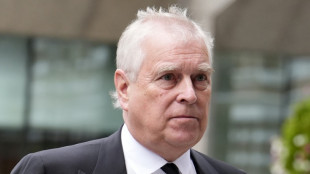 Ex-prince Andrew again caught up in Epstein scandal
Ex-prince Andrew again caught up in Epstein scandal
-
Bayern held at Hamburg to open door for Dortmund

-
 Atletico stumble to draw at Levante, Villarreal held
Atletico stumble to draw at Levante, Villarreal held
-
Chelsea stage impressive fightback to beat West Ham

-
 Arsenal stretch Premier League lead, Chelsea fightback breaks Hammers' hearts
Arsenal stretch Premier League lead, Chelsea fightback breaks Hammers' hearts
-
Napoli edge Fiorentina as injury crisis deepens

-
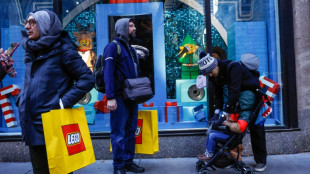 How Lego got swept up in US-Mexico trade frictions
How Lego got swept up in US-Mexico trade frictions
-
UK rights campaigner Tatchell arrested at pro-Palestinian protest
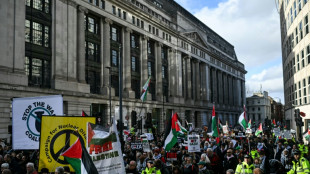
-
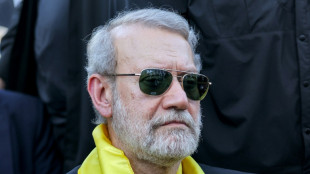 Iran says progress made towards US talks despite attack jitters
Iran says progress made towards US talks despite attack jitters
-
'Empowering': Ireland's first female sumo wrestler blazes a trail

-
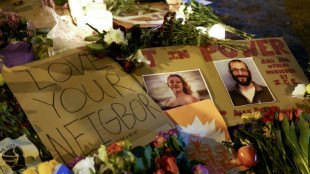 US judge denies Minnesota bid to suspend immigration sweeps
US judge denies Minnesota bid to suspend immigration sweeps
-
AC Milan prolong France 'keeper Maignan deal by five years

Bolivia at breaking point
In recent months, Bolivia has lurched from crisis to crisis. Long queues at gas stations, sporadic road blockades, and clashes between rival political camps have fed fears of a broader internal conflict. A year after a failed military putsch shook La Paz, the country now faces a decisive political transition against the backdrop of a rapidly deteriorating economy. As of August 18, 2025, preliminary results point to an October 19 runoff that ends two decades of dominance by the ruling movement—an inflection point that could steer the country toward stabilization or push it closer to a dangerous spiral.
A political rupture with violent undertones
Bolivia’s governing bloc fractured into warring factions after the split between President Luis Arce and his onetime mentor, former president Evo Morales. That rift spilled into the streets this year: blockades, counter-mobilizations, and deadly confrontations were recorded in mining towns and highland corridors, with church leaders warning of a “spiral of violence.” Those tensions sit atop the still-raw memory of June 26, 2024, when armored vehicles briefly surrounded the presidential palace before the putsch collapsed and commanders were arrested.
The economic picture is grim. In January, a major rating agency cut Bolivia to CCC-, citing vanishing foreign-exchange buffers and looming external payments; by its estimate, the country faced around $110 million in Eurobond coupons this year with only about $47 million in liquid reserves at one point. Fuel imports—long subsidized—have repeatedly faltered, triggering national transport strikes, border disruptions, and days-long lines for gasoline and diesel. Inflation, once among South America’s lowest, surged to multi-decade highs through mid-2025.
A chronic dollar shortage has fractured the currency regime: while the official rate stayed near 6.96 bolivianos per dollar, a thriving parallel market developed. By late July the street rate hovered around 14 BOB per USD—stronger than its worst levels earlier in the year, but still far from the peg—underscoring lost confidence. As households and small firms struggled to access currency, some turned to crypto and informal finance as workarounds.
Gold and gas: lifelines with limits
To scrape together hard currency, authorities leaned on the country’s booming (and often opaque) gold trade, monetizing bullion to raise billions in fresh dollars—an emergency bridge, not a structural fix. Meanwhile, the gas engine that powered Bolivia for two decades has sputtered. Exports to Argentina ended in 2024 as output slumped, and in a symbolic reversal this year, Argentina began shipping Vaca Muerta gas through Bolivia toward Brazil using Bolivian pipelines—signaling how far the regional energy balance has shifted.
Why fears of wider conflict are not far-fetched
No single spark guarantees a slide into civil war, but several risk factors now overlap: factionalized parties with loyal street bases, pockets of armed actors and hardliners, a legitimacy fight around barred candidacies and court rulings, and an economy that can no longer cushion shocks with cheap fuel or a steady dollar supply. Independent monitors have recorded lethal violence tied to the intra-left feud, while civic leaders in blockaded towns report confrontations between residents, protesters, and security forces. Each new blockade erodes livelihoods, deepens scarcity, and shortens tempers—a classic recipe for escalation.
The runway to October—and what comes after
The first-round result has upended Bolivia’s political map: two opposition figures advanced and the ruling movement’s candidate finished far behind, all amid the worst macro stress in a generation. Whoever wins in October will inherit unpopular choices: rationalizing fuel subsidies, rebuilding reserves, restoring a functional FX market, and reviving the gas sector while speeding up transparent lithium and gold governance. Failure risks further shortages, more street battles over scarcity, and a dangerous normalization of political violence. Success demands a credible stabilization plan, broad buy-in from unions and regional elites, and early signals—like targeted cash transfers and a clear, time-bound subsidy path—to keep social peace while reforms bite.

Trump's attack on the Dollar

Greenland Deal – and now?

Trump's hesitation in Iran

Cuba’s bleak oil crisis

Venezuela’s economic roadmap

Iran unrest and US threats

Iran's collapse fuels Revolt

Brexit's broken promises

France's debt spiral Crisis

Trump preps Allies for Ven Op

UK politics: Outlook for 2026



